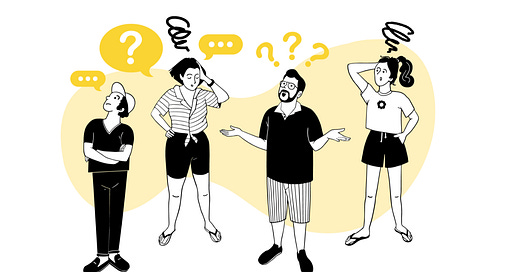"We Don't Feel Safe, Heard, or Understood."
Why young men and women cannot understand each other
A few weeks ago, I went to Philadelphia, PA to conduct a series of focus groups with young men and women. We discussed a variety of subjects including dating, relationships, infidelity, pornography and the 2024 U.S. election. As part of this research, we teamed up with The Washington Post to give participants the opportunity to share their feelings abou…
Keep reading with a 7-day free trial
Subscribe to American Storylines to keep reading this post and get 7 days of free access to the full post archives.




